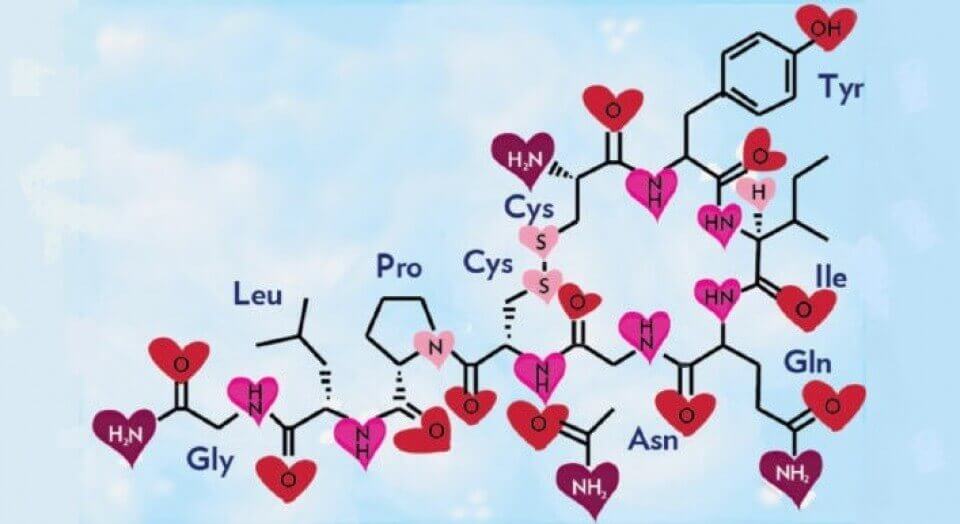Oxytocin is a hormone that performs several functions, many of which are not yet known accurately; we know, for example, that it connects us with others, the one that injects us with the force that shapes affection, reproduction and breastfeeding, love in all its forms and tones, it is she who induces work and translates life into capital letters.
Today, when we talk about oxytocin, many people associate it almost instantly with the other oxytocin, synthetic oxytocin, which is used to trigger work, a reality that is not free of some controversy, and that in a way alters magic. and great significance of oxytocin, a hormone that we produce in the hypothalamus and that is secreted by the pituitary gland.
- “Feelings are born in the chemistry of the brain.
- Not in the palate of the heart.
- Is this where the most mysterious and.
- At the same time.
- Most fascinating machine hides?.
Studies involving this small organic molecule, which acts as a hormone and neurotransmitter, are still ongoing. A few months ago, the scientific journal?It demonstrated the role that oxytocin can play on a mental level and in promoting relaxation, calm and processes that are activated, for example, with meditation.
In other words: oxytocin not only connects us with others, but also promotes the psychological and emotional mechanisms that help us better connect with ourselves, in search of our inner balance.
After highlighting some of its functions and recognizing their importance, let’s try to learn a little more about this amazing hormone: oxytocin.
Oxytocin is an oligopeptide composed of nine amino acids, was discovered at the beginning of the last century and was artificially synthesized by the biochemist Vincent Du Vigneaud in 1953, at which point this compound, of power and transcendence in our brain, began to be analyzed in microscopes and laboratories: the goal was to identify the role it played in important aspects of our lives , like our social relationships.
We now know that this chemist is the engine that turns on and shapes most of our social behaviors, such as empathy, trust, friendship, generosity and altruism, and that it plays a basic role in our dopamine reward centers: it is the one that, for example, generates pleasure during orgasms.
Given these characteristics, there is no shortage of people who assume that oxytocin is responsible for the intense and significant romantic bonds of romantic relationships.
However, as explained in a study published in the journal?Neuroscience and Biobehavioral Reviews, these latter data are much more complex than we could have imagined at first, because in emotional relationships many other components are added, many dynamics to this recipe of neurotransmitters in which oxytocin would play a very complex role.
When we are in love and feel this more intense, chaotic and almost obsessive passion, oxytocin acts as a great disinhibitor, scientists say that what this hormone causes in our neural circuits is similar to what alcohol causes: it encourages us to take risks, to trust ourselves and not to see the dangers or possible implications that the relationship can have , even if it is harmful, even if it is toxic. There is no shortage of people who recognize a little oxytocin, but it still forms a more fascinating tone.
If generosity, affection, trust, and compassion are regulated by oxytocin, it is probably understandable why it is known as often as the “hormone of humanity. “However, we cannot forget a very important fact: in the animal kingdom, mothers also take care of and defend their young with their lives, and their behavior is also regulated by oxytocin. In fact, we know that between dogs and humans an almost magical bond is established by this same hormone.
“The eyes are no good for a blind heart. ” Arabic Proverb
Therefore, without labeling it as the hormone of humanity, we must see it from a broader perspective, as a facilitator of life, with capital letters.
Because through it we connect with each other, with other species, with our environment and even with ourselves to live in greater harmony, understanding that love, altruism, care and personal care guarantee survival.
In addition, we are currently seeing something interesting as valuable, it has been found that oxytocin increases our attention to the social and emotional information of our environment, guides us towards certain stimuli to treat them as meaningful and so that we can remember, interpret and treat them. Once again this “connection” appears, the force that invites us to connect with what surrounds us to be part of the summit.
Something like this opens up a new mechanism of action with people with autism spectrum disorders, in fact it has been shown that an oxytocin deficiency can contribute to the onset of autism, so the first clinical experiments are conducted to improve social integration. quality of autistic people’s interactions.
We hope so, we also hope that the discoveries involving the functions of this fabulous molecule will never cease to amaze us, to demonstrate the wonders that lurk in our biology.
References
-Kerstin Uvns Moberg (2009) “The hormone of love, calm and healing”. Barcelona: Obeslisco
-Patty Van Cappellen, Baldwin M. Camino (2016) Effects of oxytocin administration on spirituality and emotional responses to meditation, “Cognitive and Affective Social Neuroscience”. Flight 11, No. 10
-Carmichael, MS, Humbert, R. , Dixen, J. , Palmisano, G. , Greenleaf, W.

